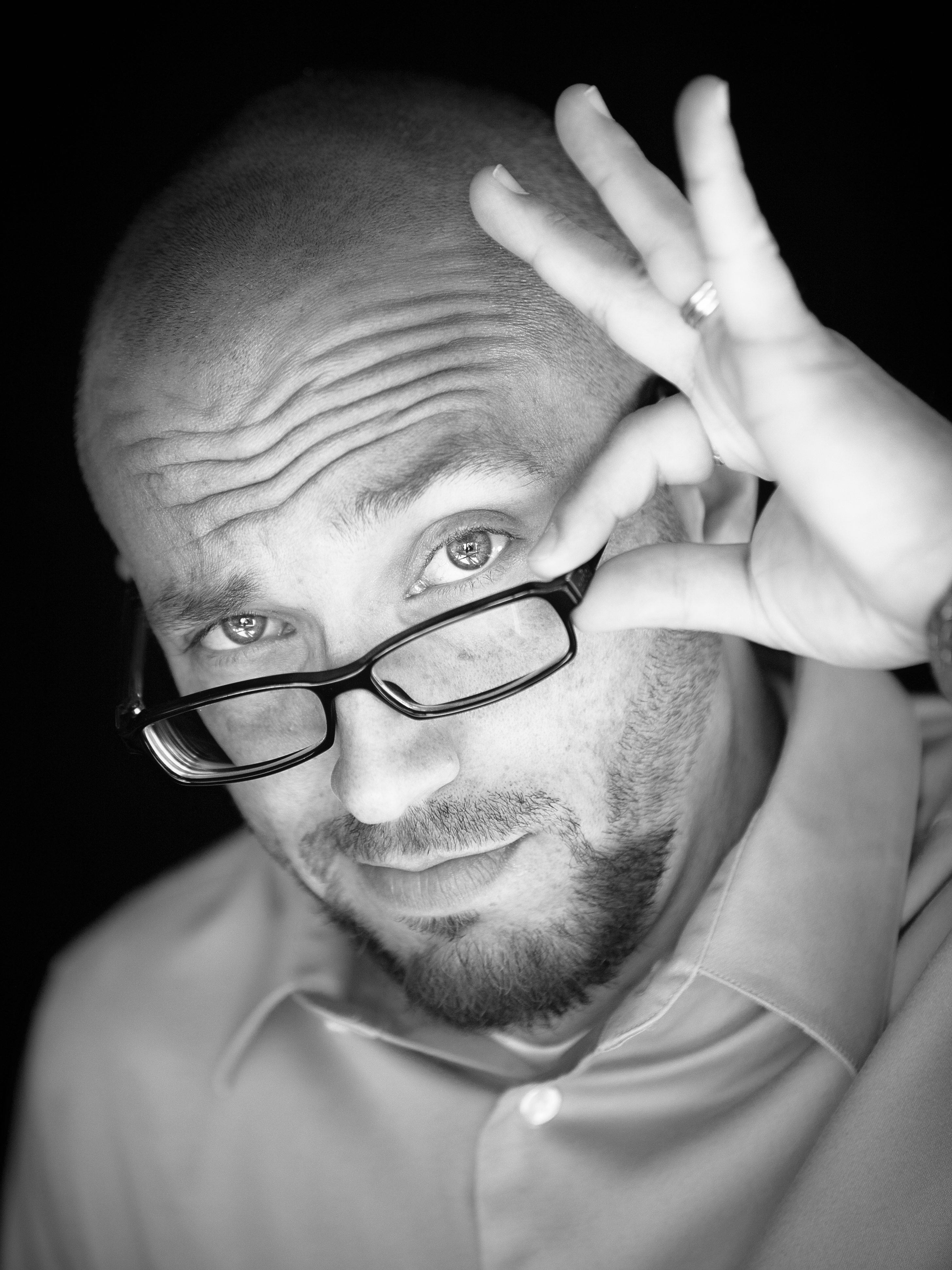Our new book, Salaam, Love: American Muslim Men on Love, Sex & Intimacy, will be released on February 4th. In the lead up to the release, meet our 22 contributors.
Today, meet Sam Pierstorff!

An excerpt from Sam’s story, “Soda Bottles & Zebra Skins”:
In college, among my Muslim male friends, which, alhamdulillah, I had plenty of at Long Beach State University, no one talked about masturbation or virginity. We all just assumed they both existed in our lives. The running joke was that every Muslim male was Hanafi until he got married because the Hanafi school made masturbation permissible, but only to prevent zina or to release sexual tension (not just desire). Otherwise, it was forbidden. I never asked, but I am pretty sure my male Muslim friends released a lot of sexual “tension” in college. I read somewhere that 99 percent of men do it, and the other 1 percent lie about it. We were the 1 percent. Muslim men, growing up in the United States of pornography and booty shorts, are not immune. Guilt ridden? Yes. Overflowing with regret and shame? Perhaps. Full of prayers for greater strength in the face of temptation? Every Jumma. But definitely not immune.
To read more, order Salaam, Love today!
Q&A with Sam
Tell us about yourself
I have been writing on and off since my senior year in high school when I wrote a narrative piece about hiding under my parents’ bed as a child while it was still my parents’ bed. When my parents got a divorce, I hid elsewhere, mainly inside myself. I remember crying in class that day—ambushed by my little essay when Mrs. Podgorski asked me to read aloud. Instead of consoling me with clichés, she called me a writer.
Writing has helped me unhide. I am an open book and my poems and stories reflect that honesty. I am currently writing a novel about a boy growing up with a punk rock father and revising a novel about growing up Muslim in America, a semi-autobiographical portrait of my brother and me. My fiction is represented by The Writers House, NYC, and I pray every day for something good to come of all this writing besides self-fulfillment, or course.
Why were you drawn to this project?
Love is universal and wonderful, but it’s also a bit of a taboo in some cultures. There’s no formula for finding real love, just formulas for putting two people in the same room – arranged marriages, blind dates, Match.com. In the Muslim tradition, there are strict guidelines (and stereotypes worth debunking) and young Muslims feel horrible for digressing. In my thirties, I am more confident than I was as a teen and twenty-year-old, so I am happy to tell my story. It’s liberating to finally say I am not perfect, but I am trying. I think young Muslims (and all young people) probably need to hear that our youthful vices and immature dalliances do not dictate our future lives, and God loves us, even those who slip and fall, as long as they learn to rise again and be grateful.
What was the most challenging part of sharing your story?
The most challenging part will come once the story is published and available for purchase. My wife still has not read it—so I am in trouble there—and no doubt her parents and other relatives will frown upon some of the content because it may affect my reputation and reveal some secrets that will embarrass others. But I am going to pretend not to care. In Islam, it’s pretty clear that God is the final and ultimate judge and his mercy is greater than his wrath. So I will let the judgment of others slide off my shoulders and focus on being good to myself, others, and being grateful to God for the health, happiness, and love He’s provided. Besides, I think it’s time we all stop pretending we’re holier than thou and be honest that we have weaknesses, and it takes great strength to admit publicly where and when we went wrong.
If there’s one thing you hope that readers will take away from your story, what is it?
I hope readers laugh a little and smile. The take away for readers may be that if a mostly-white Muslim kid from divorced parents can marry a gorgeous Indian girl with pretty strict parents and a very Muslim household, then anyone can find love in a Muslim environment. It may take some finesse and covert dating tactics, but it’s possible if your heart and intentions are good. My journey to marriage was windy and sinful by some standards, but I am here now in the 13th year of a great marriage with three awesome kids, so God has most definitely blessed me. That much I am certain of.
Anything else?
I am proud to be a part of this anthology because I am proud to be a part of a growing culture of Muslims in America who are open and honest about who they were, who they are, and who they will become. There is no formula for “goodness.” We can all recount examples of Muslim boys and girls who were born to imams and scholars and amazingly Islamic mothers who ended up on drugs, divorced, or worse. Likewise, some of the “losers” we grew up with became great men and women, pious and generous. Only God knows what will become of us no matter how certain we think we are of people. So the moral of the story: Relax. Don’t judge. God will sort it all out in the end. Ameen.











